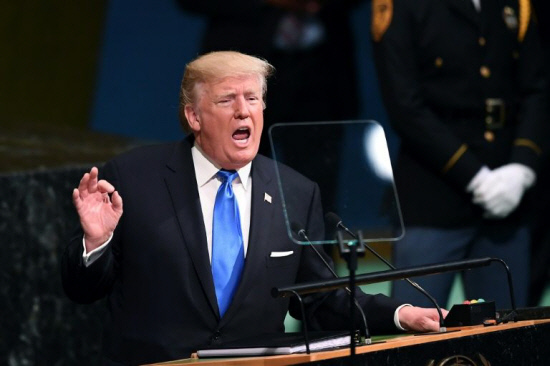The United States has always been an important player in defining the European Union’s energy security and supporting its gas supply diversification plans. The Trump administration is underlining the US’ role as a gas exporter, which marks a shift from a strategic to a commercial approach and threatens further divisions and mistrust among EU member states.
Donald Trump emphasized during his campaign that he wanted to steer the country towards “energy dominance” as a “strategic, economic, and foreign policy goal”. This goal is supported by a significant rise in US oil production (78.6%) and gas production (43%). In 2016, the US had become the third largest oil producer in the world and the largest in natural gas globally over the past decade. To clarify what “energy dominance” means, Energy Secretary, Rick Perry, Environment Protection Agency Administrator, Scott Pruitt, and Interior Secretary, Ryan Zinke, have recently explained that dominance means “a self-reliant nation, free from the geopolitical turmoil of other nations that seek to use energy as an economic weapon.”
Donald Trump has also emphasized the US role as a gas exporter, a topic of particular interest to the EU, as it is seeking more competition and lower prices on gas imports. In July 2017, President Trump spoke at the Three Seas Initiative in Warsaw where he underlined the US’ role in Central and Eastern Europe in boosting the region’s interconnectivity. He also emphasized the vital role the US is playing in LNG area and the one it could play to break Gazprom’s dominance on Eastern European markets. To that end, President Trump pointed out that US LNG cargoes had already reached the region, with the first US LNG shipping having arrived in Poland in June 2017.
The diversification of gas supplies has been an EU objective for a long time. In pursuit of this goal, Brussels has frequently advocated for the US to lift administrative restrictions on gas exports. The energy position of the new US administration seems to be consistent with the previous administration, which granted licenses for the export of up to 100 billion cubic meters yearly. This potential increase in global competition is a positive development from an importer’s perspective.
Judging from President Trump’s Warsaw speech, it seems that the US is moving from a strategic commitment to allies to a more commercially driven discourse. For example, whereas under the Obama administration, the US joined threw their political weight behind the European Commission and some member states’ opposition to Nord Stream 2, insisting that the project was contradicting the Western commitment to support Kiev against Russia’s destabilizing actions, under the Trump administration, the US has expressed its opposition to the pipeline project while stressing its desire to sell more gas to Europe.
There are three main implications for the European Union and measures Brussels should adopt: First, the EU should generally welcome the addition of US LNG to the global market, but it should also stress that US gas plays no special role in the Union’s energy policy choices that are still determined by market-based approach to external gas supply. Second, within the political dialogue around the Energy Union initiative, the underlying reasons for the intensifying intra-EU race to host a gas entry point need to be addressed.
Finally, the Commission along with the member states should make the effort to counter the view, popular in Central and Eastern Europe, that LNG is the only long-term response to the EU’s energy diversification needs, the others being solidarity in emergency situations, energy efficiency and diversification of sources (e.g. renewable energy). A failure to adequately respond to the shift in the US energy discourse will not only lead to continued intra-EU competition, which will only benefit third parties politically or commercially, but it may also prevent Europe from taking advantage of the current benign global gas market conditions.
‘Trump’s Gas Doctrine: What Does it Mean for the EU? – Analysis by Marco Giuli –European Policy Center (EPC).
(The Analysis can be downloaded here)




